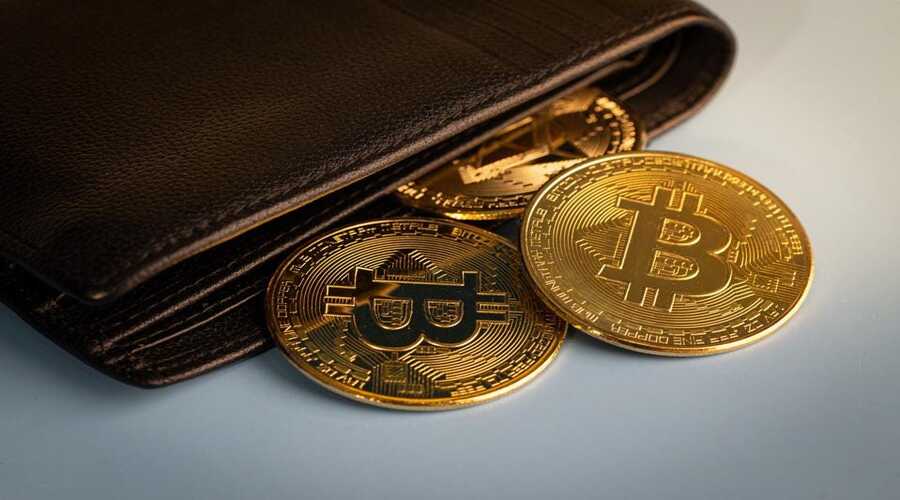Bitcoin has been around for over a decade, and its popularity has skyrocketed in recent years. As more people invest in Bitcoin, the need for secure and reliable Bitcoin wallets has become increasingly important. A Bitcoin wallet is a digital wallet that lets you send, store and receive Bitcoin. In this article, we’ll take a closer look at some of the best Bitcoin wallets available, including hardware wallets, software wallets, and mobile wallets.
What to Consider in a Bitcoin Wallet
Before we dive into our list of the best Bitcoin wallets, let’s take a look at some of the factors you should consider when choosing a Bitcoin wallet.
Security:
One of the most important factors to consider when choosing a Bitcoin wallet is security. Since Bitcoin is a digital currency, it’s important to choose a wallet that offers advanced security features, such as two-factor authentication, multisig support, and cold storage.
User-friendliness:
While security is crucial, it’s also important to choose a wallet that’s user-friendly and easy to use. A complicated or confusing wallet can lead to mistakes or even the loss of your Bitcoin.
Multi-currency support:
While Bitcoin is the most popular cryptocurrency, there are many others out there. If you’re planning to invest in multiple cryptocurrencies, it’s important to choose a wallet that supports them.
Customer support:
Finally, it’s important to choose a wallet that offers reliable customer support. If you run into any issues with your wallet, you want to be able to get help quickly and easily.
Now that we’ve covered what to look for in a Bitcoin wallet, let’s take a look at some of the best Bitcoin wallets available.
Hardware Wallets
Hardware wallets are physical devices that store your Bitcoin offline, making them one of the most secure options available.
Ledger Nano X
The Ledger Nano X is the most popular hardware wallet. It offers advanced security features, such as a secure chip and PIN code, and support for multiple cryptocurrencies, including Bitcoin, Ethereum, and Litecoin. The Nano X is also portable and easy to use, with a user-friendly interface.
Trezor Model T
The Trezor Model T is another popular hardware wallet that offers advanced security features, such as two-factor authentication and a secure chip. It also supports multiple cryptocurrencies, including Bitcoin, Ethereum, and Litecoin, and offers a user-friendly interface.
Software Wallets
Software wallets are digital wallets that you can download onto your computer or mobile device.
Exodus
Exodus is a popular software wallet that’s available for desktop and mobile devices. It offers a user-friendly interface and support for multiple cryptocurrencies, including Bitcoin, Ethereum, and Litecoin. Exodus also offers advanced security features, such as two-factor authentication and a recovery phrase.
Electrum
Electrum is a popular software wallet that’s been around since 2011. It offers advanced features, such as multisig support and cold storage, and is available for desktop and mobile devices. Electrum also offers a user-friendly interface and support for multiple cryptocurrencies.
Mobile Wallets
Mobile wallets are software wallets that you can download onto your smartphone.
Mycelium
Mycelium is a popular mobile wallet that offers advanced features, such as support for hardware wallets and local trading. It also offers a user-friendly interface and support for multiple cryptocurrencies, including Bitcoin and Ethereum.
Edge
Edge is another popular mobile wallet that offers advanced security features, such as two-factor authentication and biometric authentication. It also supports multiple cryptocurrencies, including Bitcoin, Ethereum, and Litecoin, and offers a user-friendly interface.
Types of Bitcoin Wallets
There are several types of Bitcoin wallets available, each with their own unique features and advantages. In addition to hardware, software, and mobile wallets, there are also web wallets, paper wallets, and brain wallets.
Web wallets are online wallets that you can access through your web browser. They offer a convenient way to store your Bitcoin, but they’re generally considered less secure than other types of wallets.
Paper wallets contain your public and private keys on a physical piece of paper. They’re considered one of the most secure options available, as they’re completely offline and can be stored in a safe location.
Brain wallets are a type of paper wallet that’s created by memorizing a passphrase. While they offer a high level of security, they can be difficult to use and remember.
Securing Your Bitcoin Wallet
Regardless of which type of Bitcoin wallet you choose, it’s crucial to take steps to secure it. Here are some tips which help you to secure your Bitcoin wallet:
Use a strong password:
Choose a password that’s at least 16 characters long and includes a mix of letters, numbers, and symbols.
Enable two-factor authentication:
Two-factor authentication adds an extra layer of security by requiring a code in addition to your password.
Keep your private key offline:
If you’re using a hardware or paper wallet, keep your private key in a safe location that’s not connected to the internet.
Keep your software up-to-date:
Make sure to update your Bitcoin wallet software regularly to stay protected against potential vulnerabilities.
Backup your wallet:
Regularly backup your Bitcoin wallet to ensure that you can recover your funds if something goes wrong.
Best Practices for Using Bitcoin Wallets
In addition to securing your Bitcoin wallet, there are also best practices to follow when using it. Here are some tips for using your Bitcoin wallet:
Verify transactions:
Always double-check transactions before sending Bitcoin. Once a transaction is sent, it’s irreversible.
Check fees:
Be aware of the fees associated with using your Bitcoin wallet, including transaction fees and storage fees.
Keep track of your addresses:
Keep track of your Bitcoin addresses and ensure that you’re sending Bitcoin to the correct address.
Be cautious of scams:
Be wary of phishing scams and other scams that may try to steal your Bitcoin.
Keep some Bitcoin in cold storage:
Consider keeping some of your Bitcoin in cold storage, such as a hardware or paper wallet, for added security.
Conclusion
Bitcoin wallets are a crucial part of the Bitcoin ecosystem, allowing you to store, send, and receive Bitcoin. When choosing a Bitcoin wallet, it’s important to consider factors such as security, user-friendliness, multi-currency support, and customer support. Regardless of which type of Bitcoin wallet you choose, it’s crucial to take steps to secure it and follow best practices when using it. By doing so, you can ensure that your Bitcoin is safe and secure.















